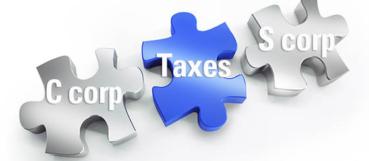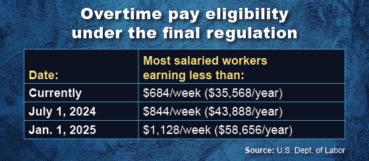Dodge the tumult with a buy-sell agreement

Businesses with multiple owners generally benefit from a variety of viewpoints, diverse experience and strategic areas of specialization. However, there’s a major risk: the company can be thrown into tumult if one of the owners decides, or is compelled by circumstances, to leave.
A logical and usually effective solution is to create and implement a buy-sell agreement. This is a legal document that spells out how an owner’s share in the business will be valued and transferred following a “triggering event” such as voluntary departure, divorce, disability or death.
Buy-sell benefits
A well-designed “buy-sell” (as it’s often called for short) manages risk in various ways. For starters, it helps keep ownership of the business within the family or another select group — for example, people actively involved in the enterprise rather than outsiders. In the case of a divorce, an agreement can prevent an owner’s soon-to-be former spouse from acquiring a business interest.
The death of an owner is a particularly difficult and often complex situation. A buy-sell can establish the value of the business for gift and estate tax purposes so long as certain requirements are met. The agreement is then able to play a role in providing the owner’s family with liquidity to pay estate taxes and other expenses.
Tax impact
Generally, buy-sell agreements are structured as either:
- Cross-purchase, under which the remaining owners buy the departing owner’s shares, or
- Redemption, under which the business entity itself buys the departing owner’s shares.
From a tax perspective, cross-purchase agreements are generally preferable. The remaining owners receive the equivalent of a “stepped-up basis” in the purchased shares. That is, their basis for those shares will be determined by the price paid, which is the current fair market value.
Having this higher basis will reduce their capital gains if they sell their interests down the road. Also, if the remaining owners fund the purchase with life insurance, the insurance proceeds are generally tax-free.
Redemption agreements, on the other hand, can trigger a variety of unwanted tax consequences. These include corporate alternative minimum tax, accumulated earnings tax or treatment of the purchase price as a taxable dividend.
However, there’s a disadvantage to cross-purchase agreements. That is, the owners, rather than the company, are personally responsible for funding the purchase of a departing owner’s interest. And if they use life insurance as a funding source, each owner will need to maintain policies on the life of each of the other shareholders — a potentially cumbersome and expensive arrangement.
Worth the effort
As you can see, the tax and legal details of a buy-sell agreement can get quite technical. But don’t let that discourage you from establishing one or occasionally reviewing a buy-sell you already have in place. We can help you in either case.
© 2022





